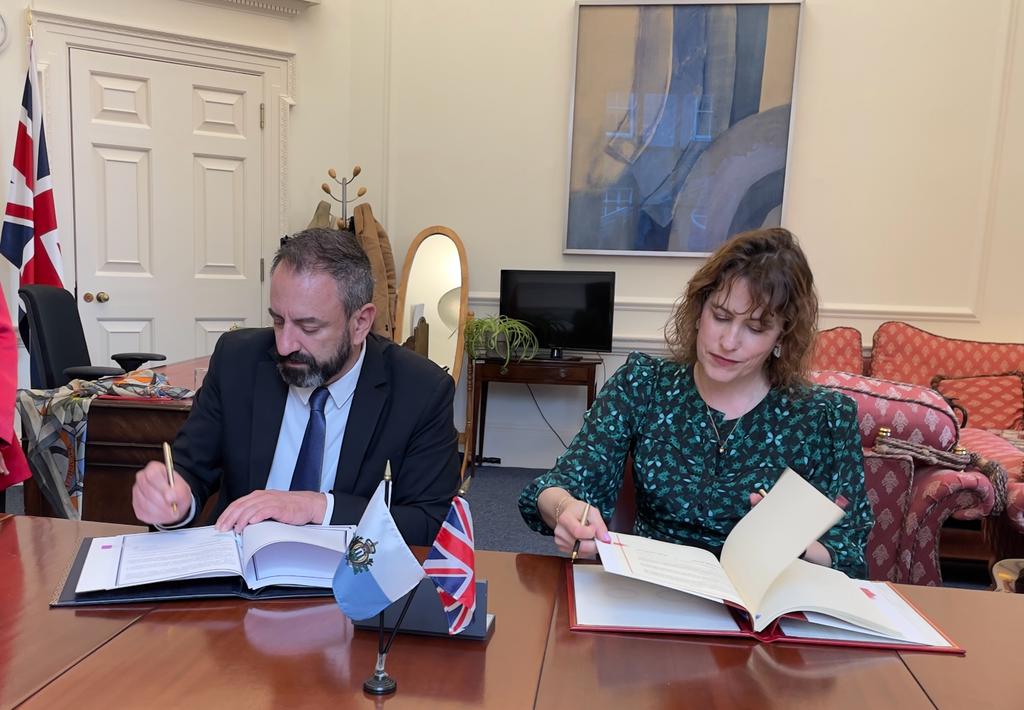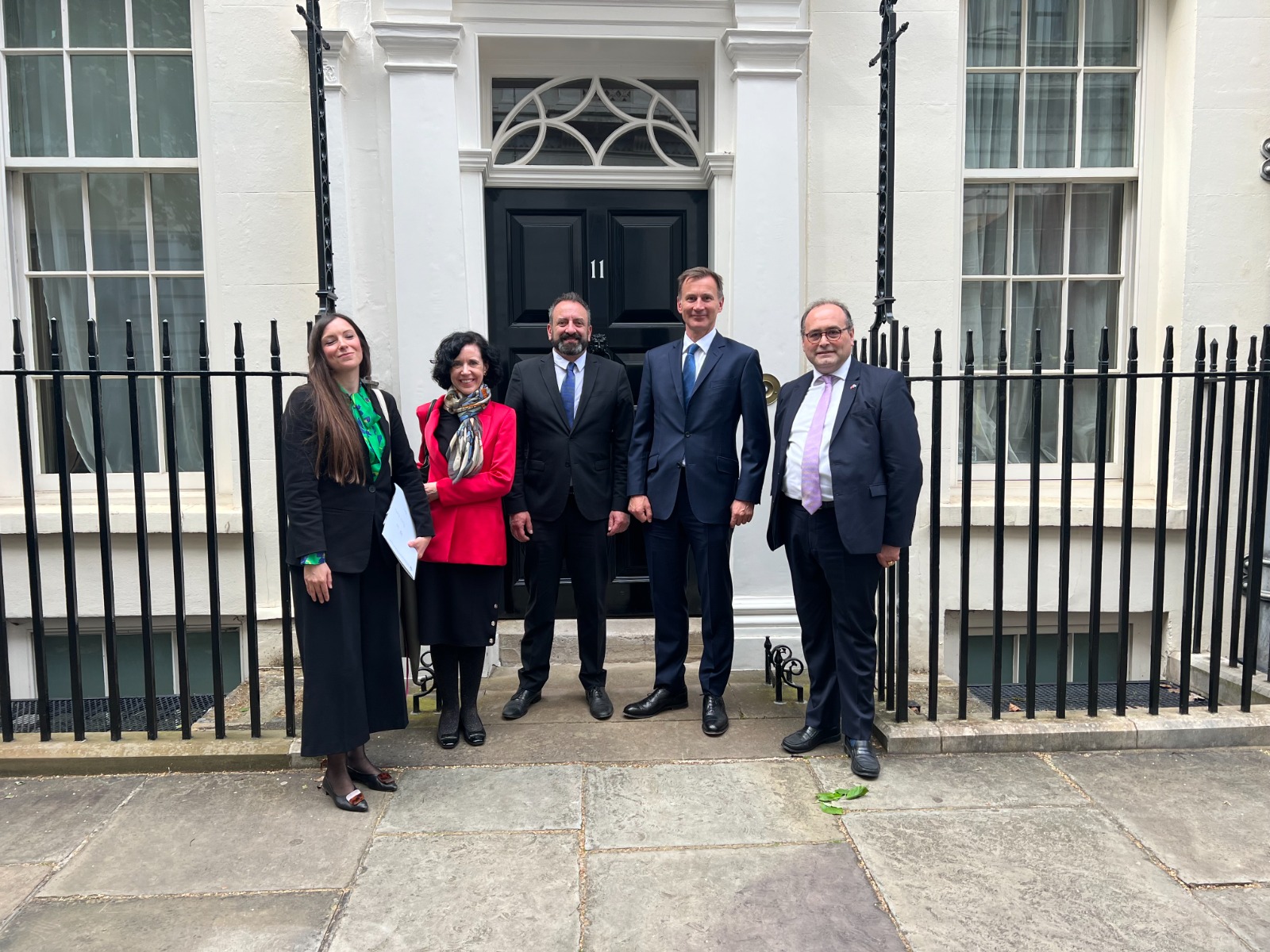On 17 May 2023, the Republic of San Marino and the United Kingdom signed the convention eliminating double taxation on income and new steps to prevent tax evasion and avoidance. The convention establishes a series of rules that determine how to declare the benefits obtained based on their origin and thus avoid double taxation on the same person or company, the same income or possession.

It was signed in a ceremony in the HM Treasury building by HE Dr Luca Beccari, Secretary of State for Foreign Affairs of San Marino and Mrs Victoria Atkins MP, the UK Financial Secretary to the Treasury. During the signing ceremony, both interlocutors emphasized that this legal instrument would offer the possibility of avoiding double taxation conflicts between two countries and prevent people, investors or companies from being obliged to pay twice for the same taxable event in two different countries.
The convention marks a significant development in the bilateral relations between the UK and San Marino. It includes provisions for exchanging information between the UK and San Marino tax authorities.
Some of the main features of the convention include:
Article 4 of the convention says that for the purposes of this Convention, the term “resident of a Contracting State” means any person who, under the laws of that State, is liable to tax therein by reason of his domicile, residence, place of management, place of incorporation or any other criterion of a similar nature, and also includes that State and any political subdivision or a local authority thereof. This term, however, does not include any person who is liable to tax in that State in respect only of income or capital gains from sources in that State.
Article 10 on dividends provides for the avoidance of double taxation on dividends paid by a company resident in one country to a resident of the other country. The article provides that dividends paid by a company resident in one country to a resident of the other country may be taxed in the country of residence of the recipient, but the tax rate shall not exceed:
• 5% of the gross amount of the dividends if the recipient is a company that owns directly at least 10% of the capital of the company paying the dividends; or
• 10% of the gross amount of the dividends in all other cases.
The article also provides that the UK may not impose a withholding tax on dividends paid by a company resident in San Marino to a resident of the UK.
Article 11 on interest provides for the avoidance of double taxation on interest paid by a resident of one country to a resident of the other country. The article provides that interest arising in one country and paid to a resident of the other country may be taxed in the country of residence of the recipient, but the tax rate shall not exceed 10% of the gross amount of the interest. The article also provides that the UK may not impose a withholding tax on interest paid by a resident of San Marino to a resident of the UK.
Article 12 on royalties provides for the avoidance of double taxation on royalties paid by a resident of one country to a resident of the other country. The article provides that royalties arising in one country and paid to a resident of the other country may be taxed in the country of residence of the recipient, but the tax rate shall not exceed 10% of the gross amount of the royalties. The article also provides that the UK may not impose a withholding tax on royalties paid by a resident of San Marino to a resident of the UK.
The article also provides that the competent authorities of the two countries may agree on other measures to avoid double taxation on royalties.
Article 17 on pensions and social security benefits provides that pensions and other similar remuneration paid to a resident of one country shall be taxable only in that State.
This means that if you are a resident of San Marino and you receive a pension from the UK, you will not be taxed on that pension in the UK. The same applies if you are a resident of the UK and you receive a pension from San Marino. There are a few exceptions to this rule. For example, if you are a resident of one country and you receive a pension from the other country for services rendered in the first country, then the pension may be taxable in the first country.
The convention also provides that social security benefits paid to a resident of one country shall be taxable only in that State. This means that if you are a resident of San Marino and you receive a social security benefit from the UK, you will not be taxed on that benefit in the UK. The same applies if you are a resident of the UK and you receive a social security benefit from San Marino. There are a few exceptions to this rule. For example, if you are a resident of one country and you receive a social security benefit from the other country for services rendered in the first country, then the benefit may be taxable in the first country.
Should you have any questions about the opportunities to do business in San Marino or how to use the benefits of the new double taxation convention, you can contact us via email.

